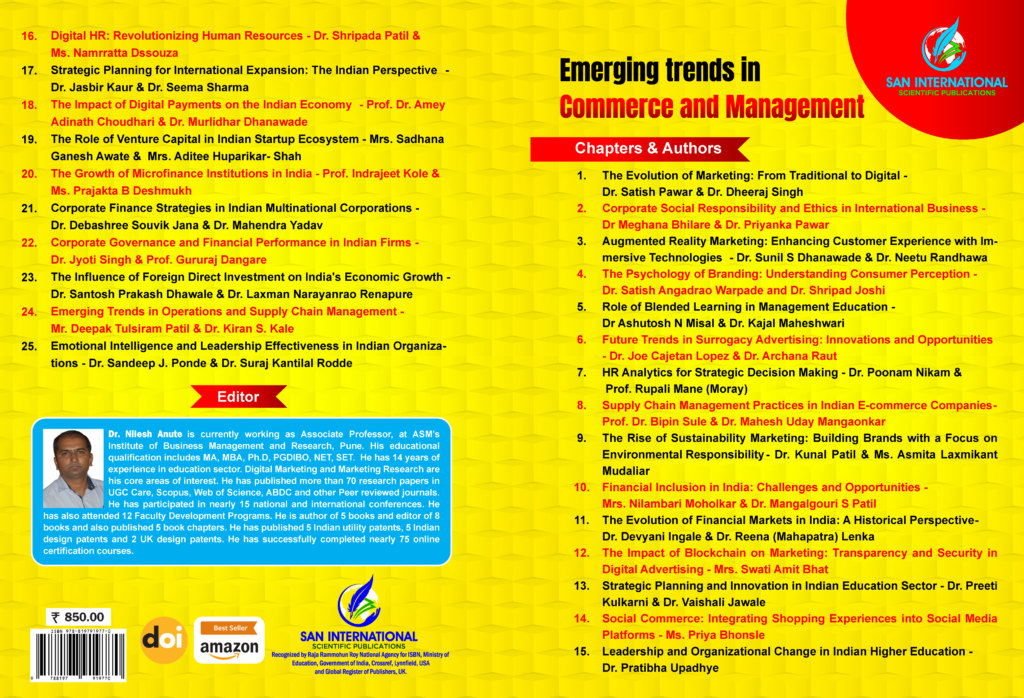Book Title: Emerging Trends in Commerce and Management
Editor: Dr. Nilesh Anute
ISBN: 978-81-979197-7-0
Chapter: 21
DOI: https://doi.org/10.59646/emc21/255
Authors:
Dr. Debashree Souvik Jana, Assistant Professor, Dr. D. Y. Patil School of Management, Lohegaon, Pune, Maharashtra, India.
Dr. Mahendra Yadav, Assistant Professor, Department of MBA, Dr. D. Y. Patil Institute of Technology, Pimpri Pune, Maharashtra, India.
Learning Objectives
This chapter on corporate finance strategies in Indian multinational corporations (MNCs) aims to provide a comprehensive understanding of the financial practices that drive these global entities. Readers will explore the historical evolution of Indian MNCs, from family-owned businesses to modern global players, influenced by economic liberalization and globalization. The chapter highlights key areas such as capital structure decisions, emphasizing the balance between debt and equity financing and factors like cost of capital and financial flexibility. It covers investment strategies, distinguishing between organic and inorganic investments and the use of capital budgeting techniques like NPV and IRR. The chapter delves into risk management, detailing strategies to mitigate financial risks through diversification, financial derivatives, and hedging. Efficient working capital management and its impact on liquidity and profitability are examined, alongside dividend policies and their influencing factors. The M&A section explores motivations, financial strategies, and case studies, while international financial management addresses foreign exchange risk, financing operations, and tax optimization.
References
- Rosenberg, L. J., & Posner, L. D. (1979). The Logical Framework: A Manager’s Guide to a Scientific Approach to Design and Evaluation. Washington: Practical Concepts.
- Rutherford, T. D., Murray, G., Almond, P., & Pelard, M. (2018). State accumulation projects and inward investment regimes strategies. Regional Studies, 52, 572–584.
- Saka-Helmhout, A. (2020). Institutional agency by MNEs: A review and future research agenda. Journal of International Management, 26, 1–17.
- Saka-Helmhout, A., Chappin, M. M. H., & Rodrigues, S. B. (2021). Corporate social innovation in developing countries. Journal of Business Ethics, 181, 589–605.
- Santos, F., Pache, A.-C., & Birkholz, C. (2015). Making hybrids work: Aligning business models and organizational design for social enterprises. California Management Review, 57, 36–58.

